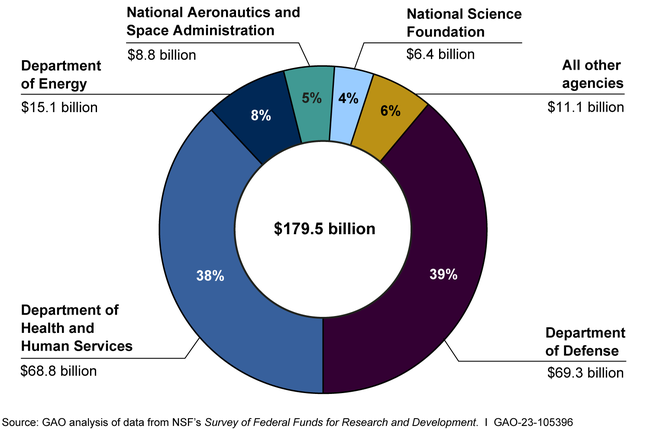Federal research grants play a crucial role in advancing scientific knowledge and improving public health outcomes. With dedicated funding, researchers like Karen Emmons and Jorge Chavarro can tackle pressing issues such as cancer risk reduction and the interplay of nutrition and human reproduction. Navigating the grant application process can be daunting, especially against the backdrop of NIH funding challenges that many face today. Grants not only provide necessary resources but also recognize and validate the impactful work aimed at enhancing community health. As researchers strive to innovate and respond to future public health needs, federal grants emerge as vital lifelines for meaningful discoveries.
In the realm of scientific inquiry, securing government funding is vital for researchers aiming to promote health and wellness. These grants enable significant studies, including public health initiatives that address nutrition and its effects on reproductive health, as well as strategies for mitigating cancer risks. The process of applying for such funding is intricate and can be filled with obstacles; however, the outcomes are often transformative. Challenges associated with obtaining financial support from federal agencies highlight the importance of a structured approach to research. Ultimately, successful funding not only empowers scientists but also reinforces the commitment to public welfare through enhanced health interventions.
Understanding Federal Research Grants
Federal research grants play a pivotal role in advancing public health initiatives, funding critical studies that address pressing health concerns. These grants, often provided by institutions like the National Institutes of Health (NIH), enable researchers to explore innovative solutions in various fields, including cancer risk reduction and nutrition-related health issues. By providing tangible financial support, these grants help bridge the gap between scientific inquiry and practical applications in health care.
Researchers seeking federal grants must navigate a rigorous application process that requires meticulous planning and collaboration. The grant application process is competitive and demands a solid understanding of both the scientific landscape and the specific funding opportunities available. This often involves establishing partnerships with community organizations and staying abreast of the latest research trends to ensure that proposals are both relevant and impactful.
Frequently Asked Questions
What are the key steps in the federal research grants application process?
Securing federal research grants involves several essential steps, including understanding grant guidelines, establishing community relationships, and preparing a comprehensive application. Researchers must submit a one-page specific aims document, followed by a detailed application encompassing their research background, methodologies, and budget justifications. Successful applications align closely with the mission of funding institutions like the NIH.
What challenges do researchers face when applying for federal research grants?
Researchers often encounter significant challenges in the federal research grants landscape, including stringent competition and stringent requirements for proposal submissions. Additionally, the complexity of the NIH funding mechanisms and changing funding landscapes can complicate the grant application process, making it crucial to stay informed and prepared for potential obstacles.
How does NIH funding impact public health research initiatives?
NIH funding plays a pivotal role in advancing public health research initiatives, particularly in areas such as cancer risk reduction and nutrition. Such grants enable researchers to conduct significant studies that address pressing health concerns, ultimately benefiting communities and improving public health outcomes.
What is the significance of community partnerships in federal research grants?
Community partnerships are vital in federal research grants, especially in public health studies. They help researchers ensure their work is relevant to the populations they aim to serve, foster trust, and enhance the applicability of findings. Establishing these relationships early is crucial for a successful grant application process.
What are the typical success rates for federal research grants like the NIH R01?
Success rates for federal research grants, such as the NIH R01, can vary significantly. For example, in 2023, the National Cancer Institute reported a 14.6 percent success rate for its most common grants, indicating that competition is fierce and the application process demands thorough preparation and strategic innovation to improve chances of funding.
How can researchers navigate NIH funding challenges effectively?
To navigate NIH funding challenges, researchers should focus on creating strong proposals that emphasize innovation and significance. They can build relationships within the scientific community for feedback, stay updated on funding trends, and be prepared to revise and resubmit applications based on reviewer feedback to enhance their chances of securing funding.
What are the ethical considerations in applying for federal research grants in health sciences?
Ethical considerations in applying for federal research grants, particularly in health sciences, include obtaining informed consent, ensuring participant safety, and addressing any potential biases in research design. Researchers must adhere to institutional review board (IRB) guidelines and demonstrate a commitment to ethical standards in their grant applications.
| Key Point | Details |
|---|---|
| Importance of Federal Grants | Securing federal research grants is crucial for public health researchers to advance science and health. |
| Challenges Faced | Federal funding suspensions can disrupt essential research, as seen with Harvard University amid political concerns. |
| Grant Application Process | The process is rigorous, involving extensive preparation, proposals exceeding 100 pages, and detailed justifications for budgets. |
| Funding Success Rates | Success rates vary; for example, the National Cancer Institute had a 14.6% success rate for the R01 grant in 2023. |
| Public-Private Partnership | The collaboration between universities and the government emphasizes the importance of science for societal benefits. |
Summary
Federal research grants are vital for advancing public health initiatives as they provide the essential funding needed to support innovative studies and intervention strategies. The process of securing these grants, while rigorous and competitive, reflects the broader commitment of both researchers and government to prioritize health advancements and tackle pressing public health challenges. Understanding the intricate dynamics involved in federal grant applications not only highlights the commitment of researchers but also underscores the significant impacts these studies can have in improving overall health outcomes.
